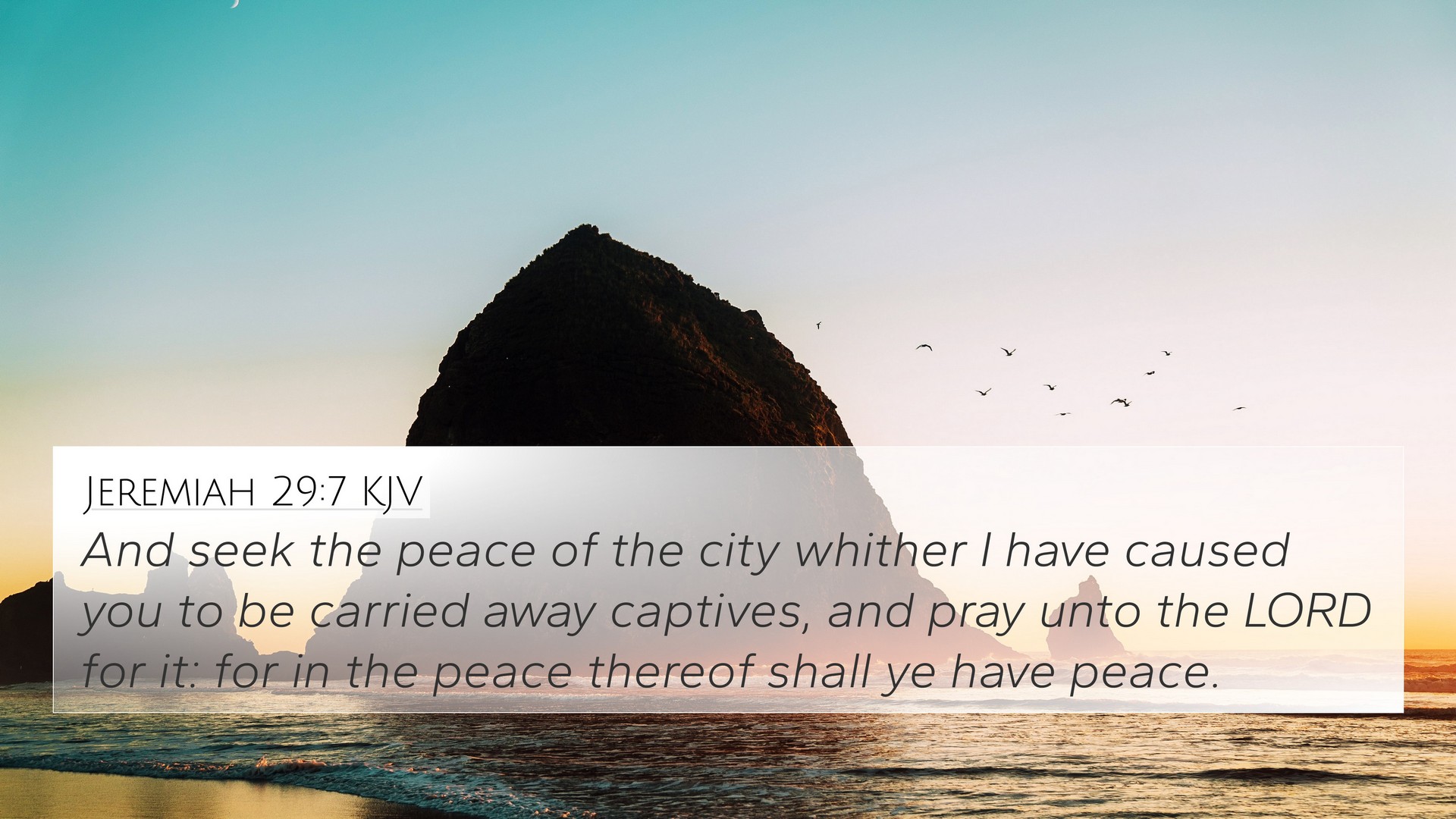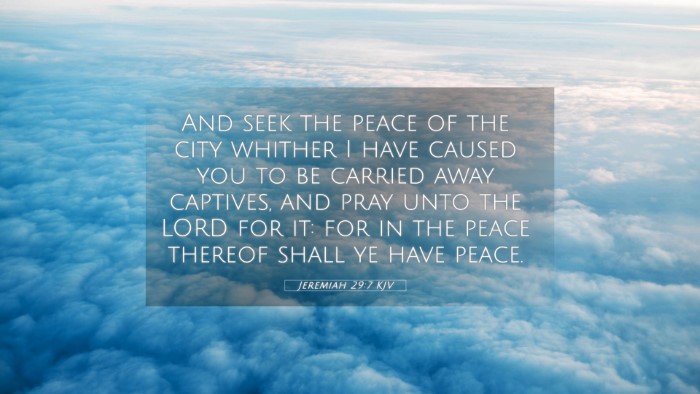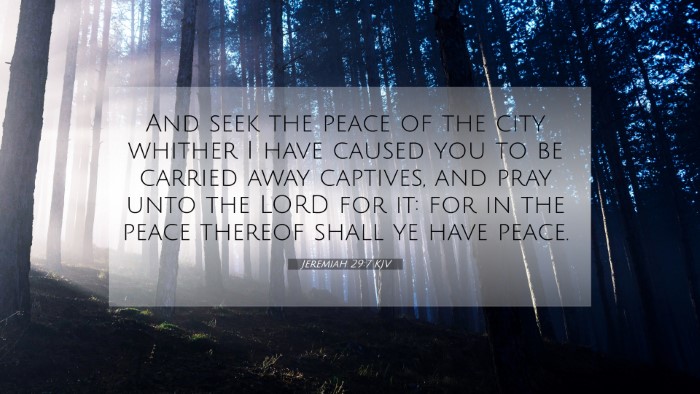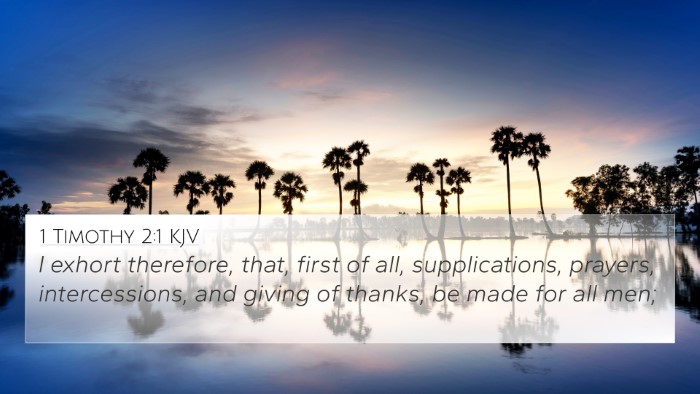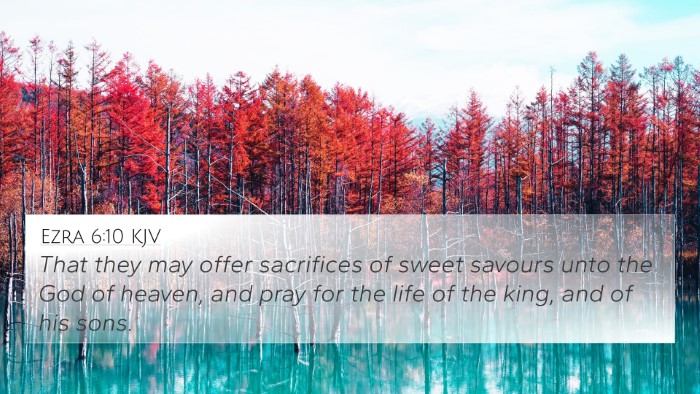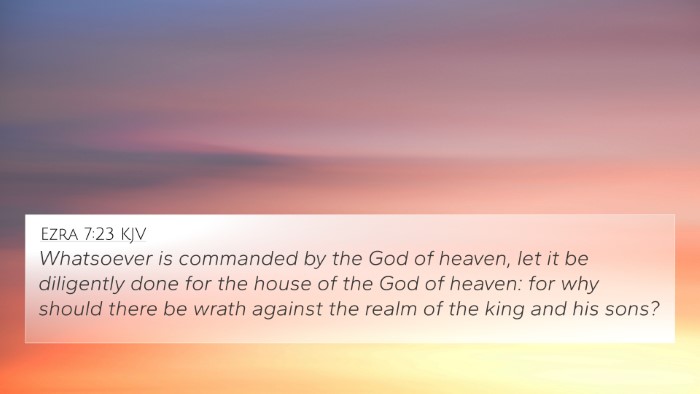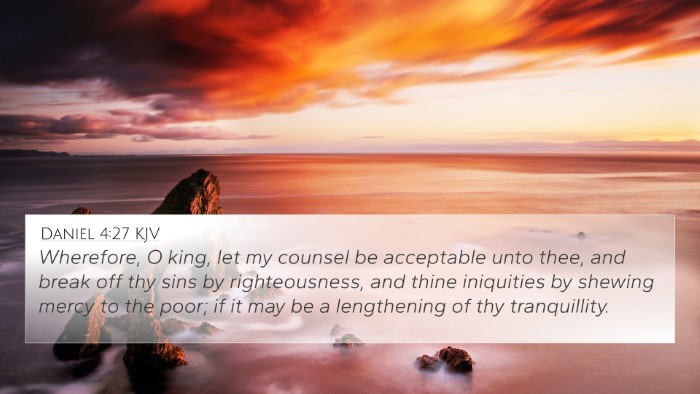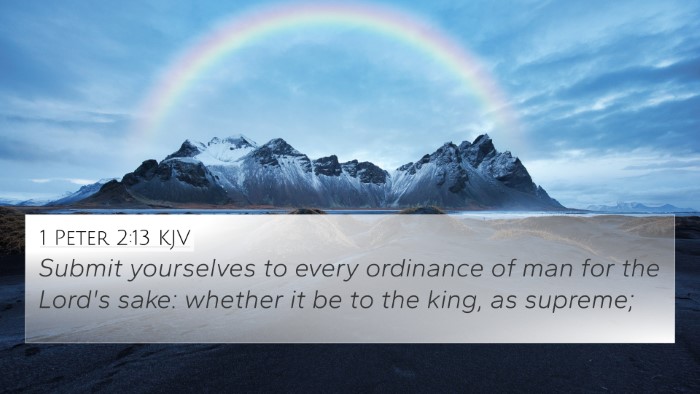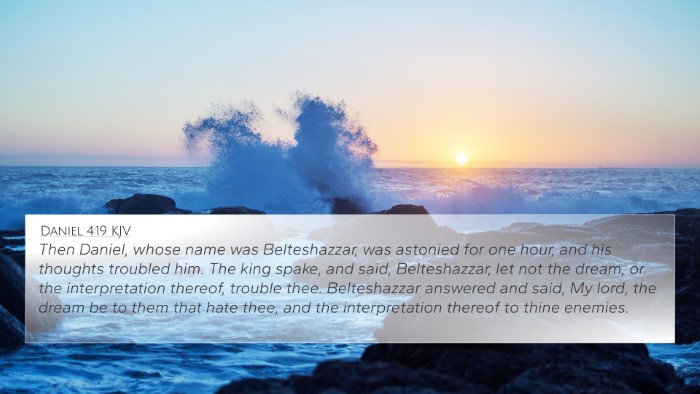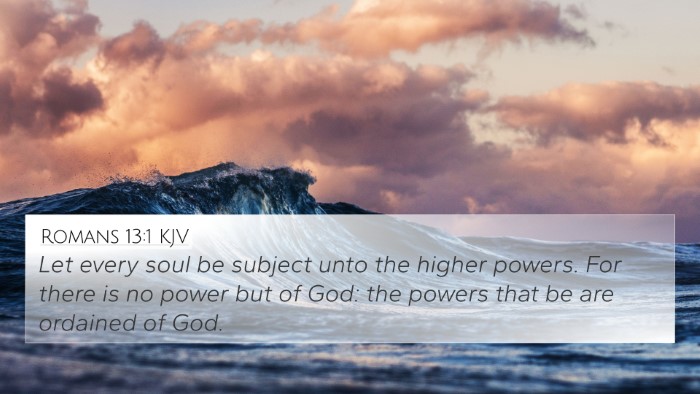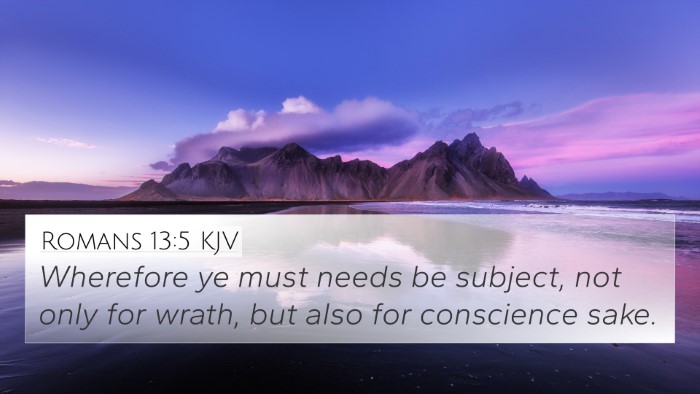Understanding Jeremiah 29:7
The verse Jeremiah 29:7 states:
"And seek the peace of the city where I have caused you to be carried away captives, and pray unto the Lord for it: for in the peace thereof shall ye have peace."
This passage, and its context, provide deep insights into how the people of Israel are encouraged to thrive in a foreign land. Let's explore the meanings and interpretations from public domain commentaries.
Commentary Insights
Matthew Henry's Commentary
Encouragement in Exile: Matthew Henry emphasizes that this verse is a divine command to the exiles. They are to seek the welfare of Babylon, where they have been taken captive. Rather than despair, they should engage with the city, understanding that their prosperity is tied to the city’s welfare.
The Nature of Peace: Henry also points out that peace here refers not only to the absence of conflict but encompasses the overall well-being and prosperity of the community. This reflects a broader theme in the Bible—that the people of God are to be a blessing wherever they find themselves.
Albert Barnes' Notes on the Bible
Active Engagement: Barnes elucidates that the exiles should actively seek the peace and prosperity of their captors. This reflects a transformative attitude where instead of harboring resentment, the Israelites are encouraged to work for the good of the society they inhabit.
Spiritual Warfare: Barnes also relates prayer to seeking peace. The act of praying for the city is vital, as it connects to God’s sovereignty and the belief that divine intervention can lead to peace for both captives and captors.
Adam Clarke's Commentary
Practical Living: Adam Clarke interprets this verse as a directive towards practical living. He comments on the necessity of integrating into society while holding on to one's faith and identity. The idea is to not just survive as exiles but to thrive in spiritual richness.
Restoration and Hope: Clarke further reflects upon the hope embedded in this command, illustrating that seeking the city’s welfare is tied to the eventual restoration of Israel. Here, Clarke encapsulates a major theme in the prophetic books: hope amidst despair.
Bible Cross-References
- Isaiah 49:6: Highlights being a light to the nations and ensuring the message extends beyond Israel.
- Ezekiel 37:14: Connects to the theme of restoration and God reviving His people.
- 1 Peter 2:11-12: Encourages believers to conduct themselves honorably among non-believers, relating to the exile experience.
- Jeremiah 7:3: Provides a parallel on the importance of amending ways to live peacefully.
- Matthew 5:9: Blessed are the peacemakers; ties to the call of God’s people to seek peace.
- Philippians 4:6-7: Encourages prayer and peace, mirroring the call to pray for the city's peace.
- Romans 12:18: Urges living peaceably with all, resonating with the peace sought in Babylon.
Thematic Connections
Peace and Welfare: The search for peace in Jeremiah relates to the broader Biblical theme of shalom, where peace encompasses holistic well-being.
Prayer as a Tool: The exhortation to pray for the city signifies the importance of spiritual practices in shaping communal environments. This theme resonates throughout the Bible, emphasizing reliance on God.
Conclusion
Jeremiah 29:7 serves as a profound reminder of God's provision and purpose, even in challenging circumstances. The commentary insights from Matthew Henry, Albert Barnes, and Adam Clarke highlight the importance of seeking collective peace, engaging actively with society, and the profound implications of prayer.
